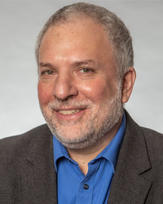Powerful science for integrating genomic and environmental data to understand human health
Join PEGS to help scientists improve the prevention and treatment of diseases
The Personalized Environment and Genes Study (PEGS) collects health, exposure, medical, and genetic data to discover how the environment and genes affect our health.
Who Can Participate?
- Adults living in North Carolina
What Is Required?
- Blood and urine samples.
- Optional samples may be requested and include stool, saliva, dust in your home, and others.
- Completion of surveys to answer questions about your health, diet, lifestyle, and environmental exposures.
- Periodically complete recontact surveys to update your information.
Why Should I Join?
By Joining this study, you may help scientists:
- Find genetic and environmental factors that increase our risk of various diseases such as diabetes, heart disease, allergies, asthma, cancer, and many others.
- Better understand the causes of various diseases.
- Find better ways to prevent diseases.
- Compensation is provided based on the surveys completed and samples collected.
Who Is Running the Study?
The study is run by researchers at the National Institute of Environmental Health Sciences (NIEHS), a part of the National Institutes of Health (NIH).
Lead Researchers

Lawrence S. Kirschner, M.D., Ph.D.
lawrence.kirschner@nih.gov
Lawrence S Kirschner, M.D., Ph.D. has recently joined the NIEHS as the new Medical Director of the Clinical Research Unit and member of the CRB. Dr. Kirschner obtained his undergraduate degree from Princeton University, followed by dual-degree training at the Albert Einstein College of Medicine. During his PhD, he studied mechanisms of multidrug resistance in cancer cells in the lab of Dr. Susan Horwitz. After completing a residency in Internal Medicine at the University of Minnesota, he moved to the NIH in Bethesda for a clinical fellowship in Endocrinology, followed by 3 years as a Staff Scientist. While there, he worked in the group of Dr. Constantine Stratakis, where he identified the gene causing the inherited tumor syndrome Carney Complex and began molecular characterization of its tumorigenic function. In 2002, he established his independent research program at The Ohio State University, where he continued his studies of molecular mechanisms of carcinogenesis associated with inherited endocrine tumor syndromes funded by the NIH and other national organizations. He maintained an active clinical practice during his time at Ohio State, and is recognized nationally and internationally as an expert in adrenal diseases and inherited tumor syndromes. He is also a well-established clinical researcher dating back to his days in Bethesda, and he has been a site PI for trials of new agents to treat endocrine disorders, including many which are now FDA approved. Lastly, he has a strong interest in education and mentoring, serving as as director of the Ohio State MD-PhD training program for over 10 years and being appointed as Associate Director of Education and Training at the OSU Comprehensive Cancer Center. He brings this wealth of experience and expertise to the leadership of our CRU. He will also serve as Director of Clinical and Laboratory Sciences for the PEGS program and devote some of his time to continuing his molecular studies of endocrine tumor formation.

Alison A. Motsinger-Reif, Ph.D.
alison.motsinger-reif@nih.gov
Alison Motsinger-Reif, Ph.D., is Chief of and a Principal Investigator in the Biostatistics and Computational Biology Branch. Overall, her group focuses on the development and application of modern statistical approaches for understanding the etiology of common, complex diseases. As the field of human genetics increasingly accepts a complex model of phenotypic development involving many genetic and environment factors, it is increasingly important to develop analytical strategies that incorporates this complexity.
Research Webpage
Study Staff

Farida S. Akhtari, Ph.D.
farida.akhtari@nih.gov
For More Information About This Study
- Call: 1‑855‑MYNIEHS (1‑855‑696‑4347)
- Email: myniehs@nih.gov
- Protocol Number: 04-E-0053
- Study Background and Protocols
This content is available to use on your website.
Please visit NIEHS Syndication to get started.


